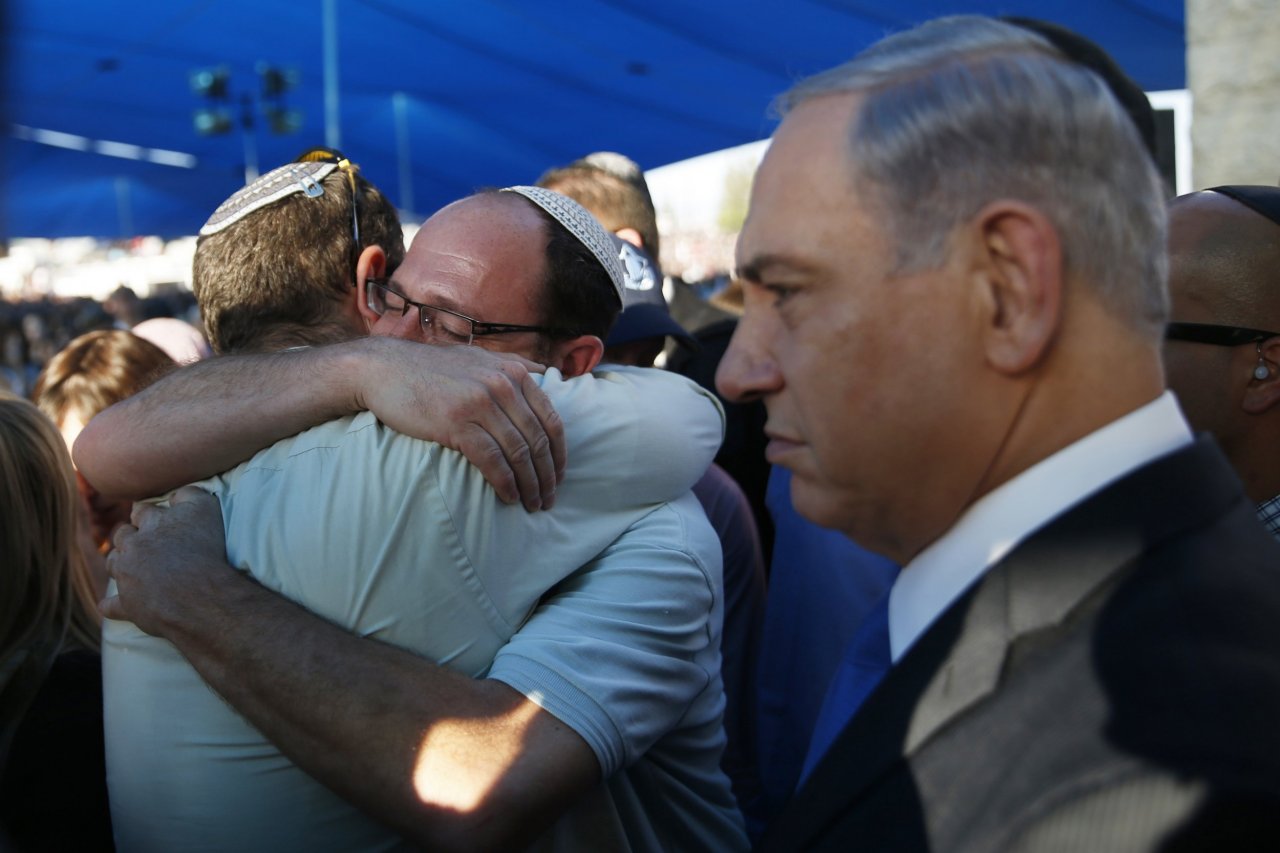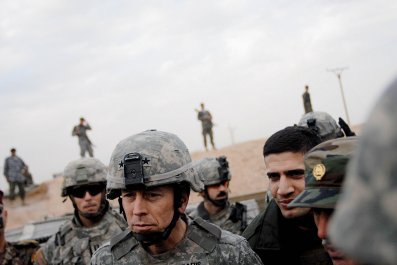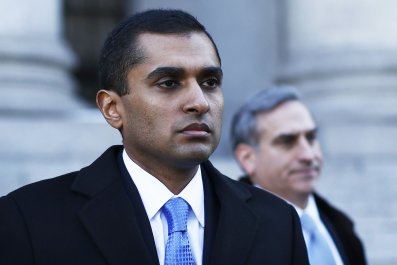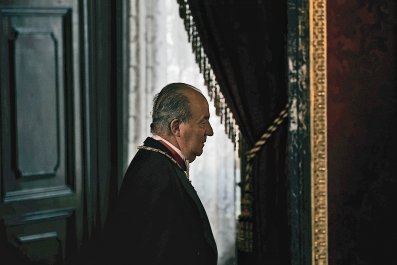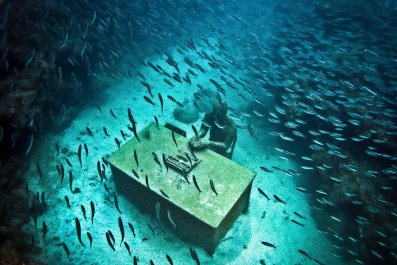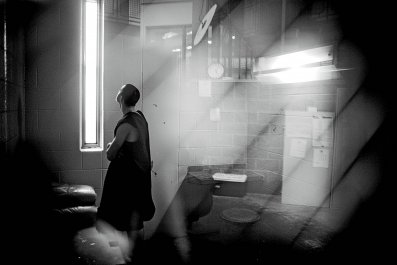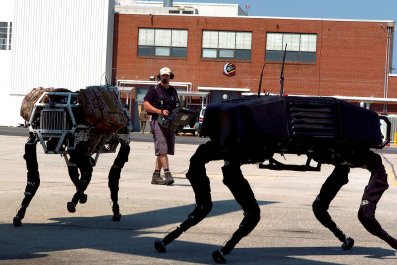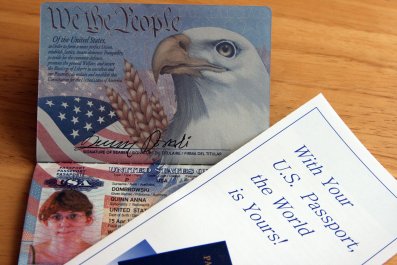For their respective families, the kidnapping of three Israeli students is a tragedy. But it?s also a potentially ruinous development that threatens the cooperation agreement signed only last month between the two major Palestinian factions.
No group has admitted responsibility but Hamas has praised the kidnappers and called for further abductions in the hope that it will put pressure on Israel to release some Hamas prisoners.
This has angered Fatah and its leader, Mahmoud Abbas, who see the kidnappings as an attempt to torpedo the strategy of achieving their aims by non-violent means. Fatah said that if Hamas is behind the kidnappings it would mean the end of the unity pact signed in May after the collapse of the US-led peace negotiations between the Palestinians and Israel.
Meanwhile, Israeli officials have acknowledged that while the main goal of the Israeli Defence Forces? (IDF) operations in the West Bank is to locate and free the teenagers, they also hope to weaken Hamas in the process by dismantling its military, political, financial and educational infrastructure in the West Bank.
Already, the incident has sparked an increase in Israeli military operations. Israel?s prime minister, Benjamin Netanyahu, said Hamas is behind the kidnapping, although no concrete proof has been produced.
Israeli troops are concentrating much of their operation, their most massive since 2002, around the West Bank?s southern city of Hebron, a Hamas stronghold where the teenagers are believed to be hidden.
?Hamas terrorists are behind this ? that we know for certain,? said Lieutenant Colonel Peter Lerner, an IDF spokesman. ?The reason we?re being secretive [about the evidence of Hamas?s complicity] is that we don?t want to hand over any information that can give them the upper hand.?
Abbas is said to be livid about the abductions and has instructed his forces to cooperate with Israel and help free the teenagers ? an approach that has angered Hamas officials.
On June 12th, Eyal Yifrah, 19, Gilad Shaar, 16, and Naftali Fraenkel, 16 (who has US citizenship), were hitchhiking on their way home from school in Gush Etzion, a large Jewish settlement block in the West Bank. They were apparently picked up by the kidnappers, who then vanished, leaving a burned car behind.
Dore Gold, a senior adviser to Netanyahu, said that since the unity agreement was signed between Hamas and Fatah, Israel has experienced an increase in attacks. Though many have hoped that the reconciliation would moderate the terror group, he said: ?Hamas has not moderated in any way.? Freeing the teenagers is the first goal of the IDF?s operations in the West Bank, Gold added, ?but if in the process of turning over every rock you give a blow to Hamas infrastructure, all the better.?
During clashes near Hebron on June 20th, a Palestinian boy, Jihad Dudeen, 15, was reportedly killed, signaling the dangers of the IDF?s strategy. While they have instructed soldiers to avoid harming the Palestinian population and non-Hamas operatives, Israeli commanders are well aware that their massive operation could easily turn into a major clash that would ignite the whole region.
?The situation is combustible,? said Efraim Sneh, a former head of Israel?s civilian administration of the West Bank who served as a top cabinet minister in several Labor-led governments. Sneh said he supports the IDF?s anti-Hamas strategy, noting, ?Anyone who weakens Hamas is welcome.? But he criticises Netanyahu?s failure to negotiate with Abbas. ?Negotiating with Abbas is also a blow to Hamas,? he said.
On June 20th, the IDF destroyed the West Bank family home of Saleh al-Aruri, a Hamas bigwig now living in exile in Turkey. Several sources have pointed to al-Aruri, who has risen in Hamas?s ranks since his release from an Israeli jail in 2010, as the brains behind the abduction.
Jonathan Schanzer, a former terrorism finance analyst at the US Treasury Department, says al-Aruri is a natural suspect. Exiled by Israel after his release following American pressure, al-Aruri first lived in Damascus, Syria, then moved to Turkey, where he operates freely as part of Hamas?s political bureau, responsible for the group?s prisoner release operations.
The unity government with Fatah ?can?t have gone well with some members of Hamas,? said Schanzer, now a vice president at the Foundation for Defence of Democracies, a Washington think tank. The abduction could indicate disagreements within Hamas. Nevertheless, Hamas officials publicly praised the kidnapping, hoping it would force Israel to release its prisoners.
In 2011, Israel released 1,027 Palestinian prisoners, several of them convicted for their involvement in deadly terrorist operations, as part of a deal with Hamas to free Gilad Shalit, an Israeli soldier kidnapped and held incommunicado in the Gaza Strip for five years. Hamas has long called for more abductions to facilitate the release of additional prisoners.
But Israel hopes to change that equation, signaling that Palestinians ? and especially Hamas ? will suffer greatly with every abduction attempt. As part of its West Bank activities, dubbed ?Operation Brothers Return,? the IDF has seized hundreds of top Hamas leaders and operatives. It also rearrested dozens who had been released as part of the Shalit deal.
Abbas denounced some of the IDF?s activities and said the rearrests violate the agreement Israel had signed as part of the Shalit deal. But more significant is that, for the first time in months, he called Netanyahu shortly after the abduction, promising to coordinate with Israel his efforts to release the teenagers.
?Those who perpetrated this act want to destroy us,? Abbas said in Jeddah, Saudi Arabia. ?The three young men are human beings just like us and must be returned to their families,? he added in what was seen as a courageous statement contradicting wide support for the abduction among Palestinians.
In Gaza, a Hamas spokesman, Sami Abu Zuhri, was quick to respond, calling Abbas?s statements, and his vow to cooperate with Israel, ?unjustified? and ?harmful to Palestinian reconciliation.? It is ?a psychological blow to the thousands of Palestinian prisoners suffering a slow death in the occupation?s jails,? Abu Zuhri said.
The public clash between the two sides of the Palestinian government has all but ended hopes for unity between the parties, which culminated when Abbas presented a new administration on June 2nd. The new unity government was the result of an agreement that for the first time brought Hamas under the umbrella of the Palestinian National Council, the top decision-making body. As part of the pact, an election was planned for January 2015. Gaza, under Hamas control, and the Fatah-ruled West Bank would unite.
Although the United States, the European Union and others list Hamas as a terrorist organisation, Washington announced that it would ?work? with the new government, arguing that none of the government?s ?technocrats? are Hamas members.
In the aftermath of the abduction, a senior Israeli official said: ?There is greater understanding in Washington and elsewhere about the measures we are taking against Hamas.? But international sympathy also comes with stark warnings against any activity that could reignite the Palestinian-Israeli conflict.
Abbas, too, risks a major blow to his reputation. By clearly denouncing the kidnapping of Israelis, he made a bet that the Palestinians are in no mood for violent confrontation and are angry with the kidnappers. As long as Israel attacks Hamas without major Palestinian casualties, he is fine. But any deterioration of the situation could spell the end of his long political career.


